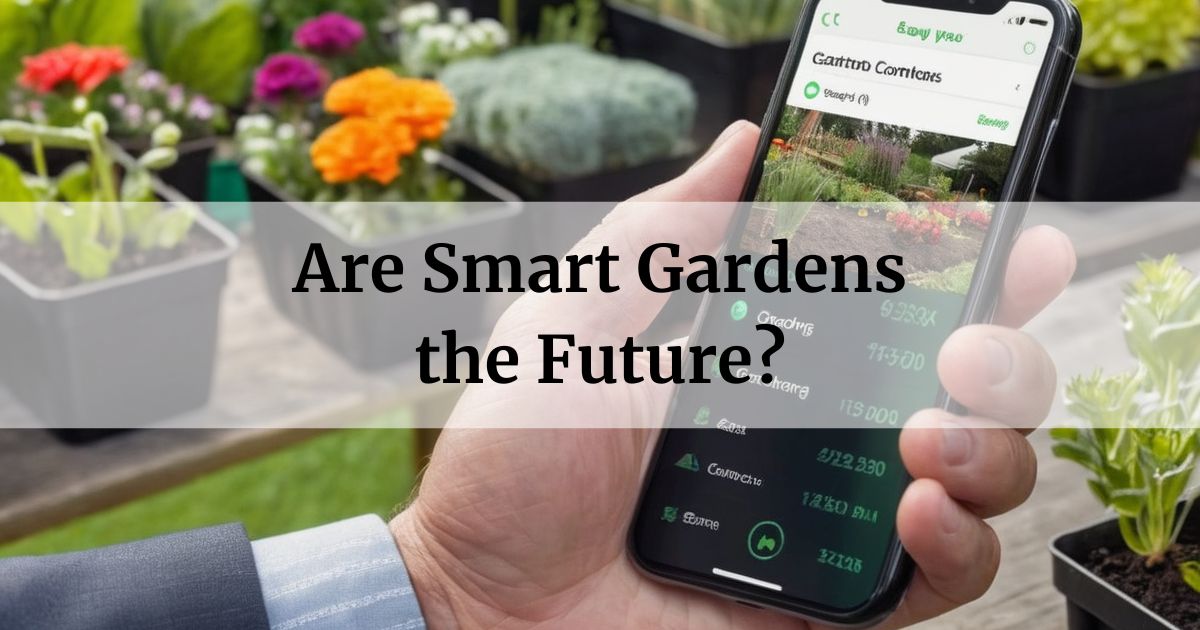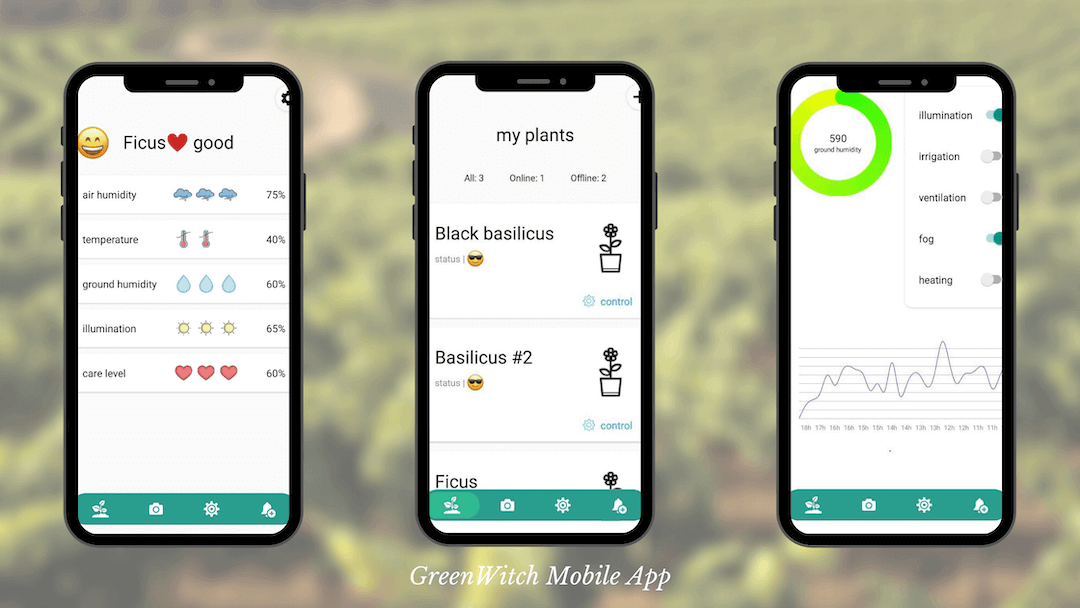
You say the magic words, “Hey Google, start my herb garden,” and poof! Lights flicker on, water gently trickles, and your countertop sprouts lush greenery. Science fiction? Nope. But are these tech-powered smart gardens just a fad, or a glimpse into the future of homegrown herbs?
In this article
The Future of Gardening Automation
Let’s face it, traditional gardens require effort. Watering, sun positioning, nutrient levels – it’s a delicate dance. Smart gardens automate much of this, promising perfect growing conditions with the click of a button (or a voice command, in this case). Built-in lights mimic the sun, sensors monitor water and nutrients, and some even adjust pH levels. Sounds like a dream, right?
Smart Gardening Demonstration (Kent)

The inclusion of smart technology in gardens has led to the creation of the ‘Smart Home Garden’ in Kent, which won international awards and suggests how many future gardens will connect and evolve. It is a show garden that has won international awards and suggests how many future gardens will connect and evolve. It was designed by RHS Chelsea medallist, Laura Anstiss, in collaboration with Potters Home Digital, Tenterden.
The expert team has introduced water, music, lighting, other Smart, and security features that can be controlled via an App. This technology is seemingly just the start of smart technology becoming part of our gardens.
What Smart Garden Apps Can Do

Smart garden apps offer a range of cool functions and benefits:
- Timed plant care tips: The Click & Grow app can provide you with timed plant care tips based on the type of plants you are growing and gives personalized care tips for each plant in your smart garden.
- Soil moisture monitoring: Some smart garden apps, such as GreenWitch, use sensors to monitor soil moisture levels and automatically adjust watering schedules based on plant needs.
- Lighting control: The Click & Grow app allows you to create custom “day” and “night” schedules by controlling the illumination inside the smart garden.
- Remote monitoring: The GreenWitch app allows you to control your plants’ life wherever you are via the internet.
- Plant identification: Some apps can help you identify various plants. PlantSnap app uses image recognition technology to identify plants.
- Nutrient monitoring: The app provides real-time feedback on the nutrient levels in your smart garden.
- Automated watering: The app lets you automate the watering process and set up a watering schedule for your smart garden.
- Connect with a community: Some apps offer forums and communities where you can connect with other smart garden enthusiasts, share experiences, and learn from each other.
Beyond the Hype
The future of gardening is likely to see the combination of the growing demand for high-performance gardening products and the integration of technology to enhance product quality.
So, are smart gardens the future? It depends. If you’re a busy bee with limited space and a brown thumb, they offer a low-maintenance way to enjoy fresh herbs. But for seasoned gardeners or those seeking bountiful harvests, traditional methods might be more fulfilling (and cost-effective).
FIND OUT MORE: Best Indoor Garden Kits of 2024
Remember: Smart gardens are a tool, not a magic bullet. Understanding your personal needs and gardening style is key.
Here’s a cheat sheet to help you decide:
Pros of Smart Gardens:
- Convenience: Automated watering, lighting, and monitoring.
- Low maintenance: Perfect for busy schedules or forgetful plant parents.
- Space-saving: Compact design ideal for small apartments or limited space.
- Educational: Apps often provide plant care tips and information.
Cons of Smart Gardens:
- Higher initial cost: Can be more expensive than traditional setups.
- Limited yield: May not produce as much as larger gardens.
- Technical dependence: Reliant on app functionality and stable Wi-Fi.
- Less control: Less customization compared to traditional gardening methods.
Ultimately, the future of homegrown herbs isn’t a one-size-fits-all answer. Whether you embrace the smart garden revolution or stick to your trusty terracotta pots, the most important thing is to get your hands dirty (or, in this case, green) and enjoy the satisfaction of nurturing life in your own home.
RELATED: 2024 Gardening Trends to Watch Out For
Frequently asked questions
Are smart gardens good for beginners?
They can be! The automation takes away some of the guesswork, making them a good starting point.
What herbs grow best in smart gardens?
Most herbs thrive, but basil, mint, and chives are popular choices.
How much do smart gardens cost?
Prices vary depending on features and size, but expect to spend more than traditional pots.
Are smart gardens eco-friendly?
Some models prioritize sustainability with recycled materials and low energy consumption.







